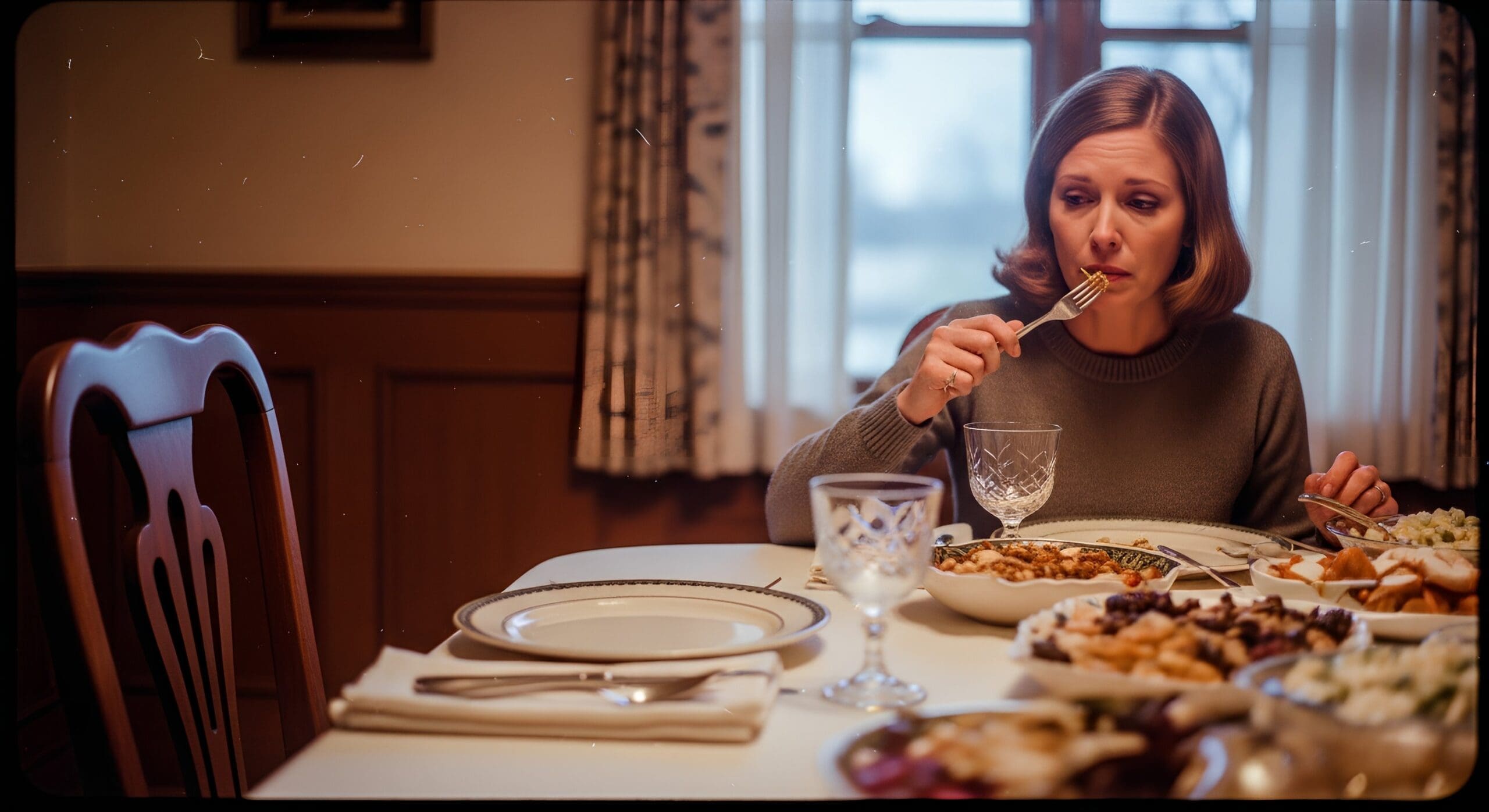Marriage is one of life’s most profound connections, offering companionship, support, and deep emotional fulfillment. Yet even the strongest partnerships can encounter obstacles that create distance between partners. When stress accumulates, misunderstandings pile up, and unresolved conflicts linger, couples may find themselves feeling more like strangers than soulmates. Marriage counseling offers a pathway back to connection, providing couples with the tools and insights needed to rebuild trust and enhance communication. Understanding how this transformative process works can help you determine whether it’s the right step for your relationship.
Research from the American Association for Marriage and Family Therapy shows that 98% of couples report receiving helpful therapy, with 97% of those receiving the help they need. These statistics highlight the profound impact that professional guidance can have on relationships facing challenges. Whether you’re dealing with communication breakdowns, trust issues, or simply want to strengthen your bond, marriage counseling provides evidence-based strategies that can revitalize your partnership.
The journey toward reconnection doesn’t happen overnight, but with commitment from both partners and the guidance of a skilled therapist, couples can rediscover the love and understanding that brought them together initially. This comprehensive guide explores how marriage counseling works, when it’s beneficial, and what you can expect from the process.
Understanding Marriage Counseling and Its Approach
Marriage counseling, also known as couples therapy or relationship therapy, is a specialized form of psychotherapy designed to help couples navigate the unique challenges they face together. Unlike individual therapy that focuses on personal growth, marriage counseling examines the dynamics between partners and how their interactions contribute to relationship satisfaction or conflict.
Professional therapists use various evidence-based approaches to address relationship concerns. Emotionally Focused Therapy (EFT) helps couples understand and reshape their emotional responses to one another. The Gottman Method focuses on building friendship, managing conflict, and creating shared meaning. Cognitive Behavioral Therapy (CBT) examines how thoughts and behaviors impact relationship patterns. Each approach offers unique benefits, and skilled therapists often integrate multiple methods to meet couples’ specific needs.
The therapeutic process creates a structured environment where both partners can explore their feelings, express their needs, and work toward solutions without the emotional intensity that often accompanies difficult conversations at home. This neutral space allows couples to examine their relationship patterns with clarity and develop new ways of connecting.
Marriage counseling addresses both surface-level conflicts and deeper underlying issues that may be driving relationship distress. While arguments about finances or household responsibilities might seem straightforward, they often reflect deeper concerns about respect, appreciation, or security. By exploring these root causes, couples can achieve more meaningful and lasting resolution.
Recognizing When Marriage Counseling Can Help
Knowing when to seek professional help can make the difference between a thriving relationship and one that continues to deteriorate. Several key indicators suggest that marriage counseling benefits could significantly improve your partnership.
Communication breakdown represents one of the most common reasons couples seek therapy. When conversations consistently lead to misunderstandings, arguments, or hurt feelings, it signals that partners need new tools for expressing themselves and hearing one another. This might manifest as frequent interrupting, defensive responses, or feeling unheard despite repeated attempts to communicate.
Loss of emotional intimacy creates another compelling reason to consider counseling. When partners feel more like roommates than romantic partners, when physical affection decreases, or when sharing thoughts and feelings becomes uncomfortable, the emotional connection that sustains relationships may need professional attention. This distance often develops gradually, making it difficult for couples to recognize and address on their own.
Recurring conflicts that never seem to reach resolution can erode relationship satisfaction over time. Whether these center on money management, parenting decisions, household responsibilities, or extended family relationships, patterns of circular arguments indicate that underlying issues require professional insight. These repetitive conflicts often reflect different values, unmet needs, or communication styles that need mediation.
Betrayal of trust, whether through infidelity, dishonesty about finances, or broken promises, creates wounds that require careful, structured healing. Rebuilding trust involves more than apologies and promises; it requires understanding why the betrayal occurred, developing new patterns of accountability, and creating safety for the wounded partner. Professional guidance provides the framework necessary for this complex process.
Major life transitions can strain even strong relationships. Having a baby, changing careers, relocating, caring for aging parents, or experiencing health challenges requires couples to adapt their roles and expectations. Marriage counseling helps partners navigate these changes while maintaining their connection and supporting each other through adjustment periods.
How Marriage Counseling Facilitates Healing and Growth
The therapeutic process begins with creating a safe, nonjudgmental environment where both partners feel heard and respected. Professional therapists maintain neutrality, ensuring that neither partner dominates sessions or feels attacked. This balanced approach allows both individuals to express their perspectives and feelings without fear of immediate criticism or dismissal.
Improving communication skills forms the foundation of most successful therapy outcomes. Couples learn active listening techniques that help them truly understand their partner’s perspective rather than simply waiting for their turn to speak. They practice using “I” statements to express needs and feelings without blaming or attacking. These skills transform confrontational exchanges into constructive dialogues that build understanding rather than create distance.
Identifying underlying issues often reveals that surface-level conflicts mask deeper emotional wounds or unmet needs. A skilled therapist helps couples recognize patterns in their arguments and explore what’s really driving their distress. Fear of abandonment, feeling undervalued, or struggling with control issues might be the real sources of conflict about seemingly unrelated topics. Addressing these root causes creates lasting change.
Rebuilding trust requires specific strategies and sustained commitment from both partners. This process involves transparency, accountability, and creating new patterns of trustworthy behavior. The betraying partner must demonstrate consistent reliability while the wounded partner learns to gradually reopen their heart. Professional guidance ensures this delicate process unfolds safely and effectively.
Strengthening emotional intimacy helps couples reconnect on a deeper level. Therapists guide partners through exercises that encourage vulnerability, empathy, and appreciation. Sharing positive memories, expressing gratitude regularly, and understanding each other’s love languages can reignite emotional spark and deepen connection. These practices help couples remember why they chose each other originally.
Developing effective conflict resolution strategies equips couples with tools for handling future disagreements constructively. Learning when to take breaks during heated discussions, focusing on solutions rather than blame, and practicing forgiveness transforms conflict from a relationship threat into an opportunity for growth and understanding.
The Transformative Benefits of Professional Guidance
Couples who engage fully in the therapeutic process typically experience significant improvements across multiple areas of their relationship. Enhanced communication represents the most immediate and noticeable change. Partners report feeling heard, understood, and valued in ways they hadn’t experienced in years. This improved communication extends beyond major issues to everyday interactions, creating more pleasure and connection in daily life.
Strengthened problem-solving abilities develop as couples learn to approach challenges as a team rather than as adversaries. They develop skills for discussing difficult topics calmly, considering each other’s perspectives, and finding mutually satisfactory solutions. These abilities serve couples well throughout their relationship, helping them navigate future challenges with confidence.
Renewed intimacy often emerges as emotional barriers dissolve and trust rebuilds. Couples rediscover physical affection, emotional closeness, and the joy of sharing their inner worlds with each other. This renewed intimacy extends beyond romantic connection to include deeper friendship and companionship.
Greater mutual understanding develops as partners gain insight into each other’s motivations, fears, and dreams. This understanding fosters empathy and reduces assumptions that often fuel conflict. Couples learn to see situations from their partner’s perspective, creating compassion where frustration once existed.
Clarity about the relationship’s future emerges through the therapeutic process. Whether couples decide to recommit to their partnership with renewed energy or choose to separate amicably, therapy provides the clarity needed to make informed decisions about their future together.
Addressing Common Concerns About Marriage Counseling
Many couples hesitate to seek professional help due to misconceptions about what therapy involves and when it’s appropriate. Understanding these common concerns can help you make an informed decision about whether counseling is right for your relationship.
The belief that therapy is only for failing relationships prevents many couples from seeking help when it could be most beneficial. In reality, many healthy couples use therapy to deepen their connection, navigate transitions, or develop better communication skills. Preventive therapy can strengthen relationships before serious problems develop, making it a valuable investment in your partnership’s future.
Concerns about therapist bias worry some couples who fear the professional will favor one partner over the other. Trained marriage counselors maintain strict neutrality, focusing on relationship health rather than determining who’s right or wrong. Their goal is helping both partners understand each other’s perspectives and find mutually beneficial solutions.
The assumption that it’s too late for help causes some couples to delay seeking support until their relationship is severely damaged. While some relationships may reach a point where separation becomes the healthiest choice, many couples find therapy effective even after years of difficulty. Professional guidance can help couples rebuild connection and trust regardless of how long problems have persisted.
Unrealistic expectations about quick fixes can lead to disappointment when therapy requires sustained effort and time. Marriage counseling is not a magic solution but a collaborative process that requires commitment from both partners. Success depends on willingness to examine patterns honestly, practice new skills consistently, and remain open to change and growth.
Maximizing Your Therapy Experience
Getting the most from marriage counseling requires active participation and commitment from both partners. Several strategies can enhance your therapeutic experience and improve your chances of achieving positive outcomes.
Choosing the right therapist involves researching professionals with specific training in couples therapy and approaches that align with your needs and values. Consider factors like location, scheduling availability, insurance coverage, and whether you feel comfortable with the therapist’s communication style. Many therapists offer brief consultations to help you determine if they’re a good fit for your relationship.
Approaching therapy with openness and honesty creates the foundation for meaningful progress. This means sharing difficult feelings, acknowledging your role in relationship problems, and being willing to consider your partner’s perspective. Holding back important information or maintaining defensive attitudes limits the therapy’s effectiveness.
Committing to the process involves regular attendance, active participation in sessions, and willingness to invest time and energy in your relationship’s healing. Most couples benefit from weekly sessions initially, with the frequency adjusting as progress develops. Skipping sessions or participating half-heartedly undermines the therapeutic process.
Practicing learned strategies at home transforms therapy insights into lasting relationship changes. This might involve using new communication techniques during daily conversations, implementing conflict resolution strategies when disagreements arise, or regularly practicing appreciation exercises. The real work of relationship change happens between sessions as you apply new skills to your daily interactions.
When Professional Help May Not Be Sufficient
While marriage counseling benefits many couples, certain situations may require different approaches or indicate that therapy alone cannot resolve relationship problems. Understanding these limitations helps set realistic expectations and ensures safety for all involved.
Lack of genuine commitment from one or both partners significantly reduces therapy’s effectiveness. If either person is unwilling to examine their behavior honestly, practice new skills, or invest emotionally in the process, meaningful change becomes unlikely. Both partners must be willing to do the hard work of relationship repair for therapy to succeed.
The presence of abuse, whether physical, emotional, or verbal, requires specialized intervention beyond traditional couples therapy. In these situations, individual therapy, safety planning, and potentially legal intervention take priority over relationship repair. Couples therapy assumes both partners are safe to express themselves honestly, which is not possible in abusive dynamics.
Fundamental incompatibility in core values, life goals, or essential needs may make staying together inadvisable regardless of improved communication skills. While therapy can help couples understand these differences clearly, it cannot eliminate them. Sometimes, the most loving choice for both partners is to separate amicably.
Active addiction or untreated mental health conditions may need to be addressed before couples therapy can be effective. These individual issues often impact relationship dynamics so significantly that addressing them individually becomes the necessary first step toward relationship healing.
Building a Foundation for Lasting Connection
Marriage counseling offers couples a powerful opportunity to rebuild trust, enhance communication, and create the strong, loving partnership they desire. The process requires courage, commitment, and vulnerability from both partners, but the rewards can transform not just your relationship but your entire approach to love and connection.
The journey toward relationship healing is rarely linear. You may experience setbacks, difficult conversations, and moments of doubt. However, these challenges often represent necessary steps in the process of breaking old patterns and building new, healthier ways of relating. With professional guidance and mutual dedication, couples can work through these difficulties and emerge with a stronger, more resilient partnership.
Remember that seeking marriage counseling demonstrates strength, not weakness. It shows your commitment to your relationship and your partner’s well-being. Many couples who complete therapy report feeling grateful for the experience, regardless of whether they ultimately stay together or choose to separate. The skills, insights, and growth that emerge from the process benefit all your future relationships.
If you’re considering marriage counseling, trust your instincts. The fact that you’re exploring this option suggests you value your relationship and want to give it the best possible chance for success. With the right therapist, genuine commitment from both partners, and patience with the process, you can rebuild trust, improve communication, and create the fulfilling partnership you both deserve.
Frequently Asked Questions About Marriage Counseling
How long does marriage counseling typically take?
Most couples attend therapy for 12 to 20 sessions, though this varies significantly based on the complexity of issues and both partners’ commitment to the process. Some couples see improvement within a few sessions, while others may benefit from longer-term therapy. Your therapist will work with you to assess progress and adjust the treatment timeline accordingly.
What if only one partner wants to attend counseling?
While couples therapy works best when both partners participate willingly, individual therapy can help the motivated partner develop new relationship skills and perspectives. Sometimes, seeing one partner’s positive changes encourages the reluctant partner to join sessions. However, sustainable relationship change typically requires engagement from both individuals.
How much does marriage counseling cost?
Therapy costs vary by location, therapist credentials, and session length, typically ranging from $75 to $200 per session. Many insurance plans cover couples therapy when provided by licensed professionals. Some therapists offer sliding scale fees based on income, and employee assistance programs may provide free sessions.
Will therapy save our marriage?
Marriage counseling provides tools, insights, and strategies for relationship improvement, but success depends on both partners’ commitment to change. While many couples experience significant improvement, some discover that separation is the healthiest choice. Either outcome can be considered successful if it leads to greater clarity and well-being for both individuals.
Is online marriage counseling as effective as in-person therapy?
Research shows that online therapy can be as effective as in-person sessions for many couples, particularly when both partners have reliable internet access and a private space for sessions. Online therapy offers greater flexibility and accessibility, though some couples prefer the intimacy and focus of face-to-face meetings.
Schedule a Session
With Us Today
We're here to start the journey to better mental health with you.


